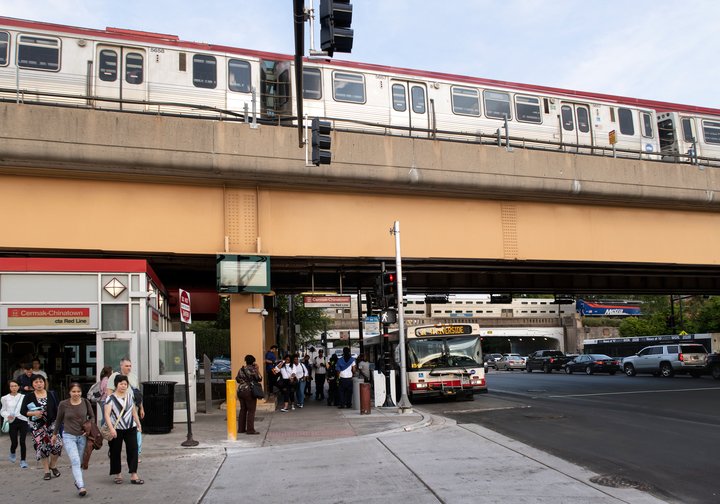With the Chicago area’s public transit system in crisis, advocates say the Regional Transportation Authority’s (RTA) ongoing strategic planning process has thus far failed to meet the needs of this historic moment.
Active Trans joined six other regional advocacy groups in sending a letter to the RTA Board of Directors highlighting how the plan is falling short and what’s needed to get the transit system through this crisis and, ultimately, help it grow and thrive.
Center for Neighborhood Technology Vice President of Government Affairs and longtime Active Trans partner Jacky Grimshaw read the letter into the record at Thursday’s board meeting. Following are excerpts from the letter:
We are writing to express our strong concern with the Regional Transportation Authority’s (RTA) strategic planning process. Our organizations have been invited to participate in the development of this plan, but over the past year we still have not seen any serious effort to address the existing and imminent challenges facing our transit system. This plan, and the process to develop it, needs to meet the needs of this historic moment and, to date, it has not.
The pandemic has hit mass transit hard. Systemwide ridership is just 60 percent of pre-pandemic levels on a good day. Yet transit is more necessary than it ever has been, especially for communities of color and those who rely on transit as their primary mode of transportation. CTA, Metra, and Pace have largely been able to meet transit riders’ needs during the pandemic, but this was only possible because of federal emergency funding.This emergency funding will expire and we need a plan to address that uncertain and serious future.
Nine months into the planning process, stakeholders should be discussing real and difficult decisions, including how to plan transit services given long term ridership uncertainty; choices over farebox and tax revenues to support transit; what equity measures should guide our regional investments; and governance of our disparate transit services. RTA’s incremental, status quo planning process lacks the awareness of the unprecedented, compounding crises communities have faced over the last two years. And it will leave the transit system more vulnerable given looming threats.
A stronger plan starts with serious engagement from RTA with the public and the communities that depend on transit the most. To date, the engagement around your plan has been lacking and when it has happened, it has concentrated only on high-level platitudes regarding transit. The public already agrees transit is essential to the City’s well-being, is an important part of our fight against climate change, and necessary for businesses and economic growth. What we need now are serious and specific proposals to maintain those foundational roles transit plays.

